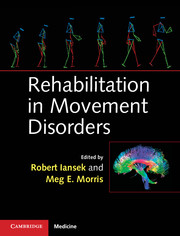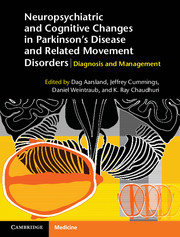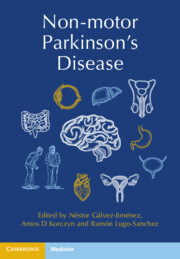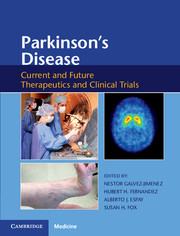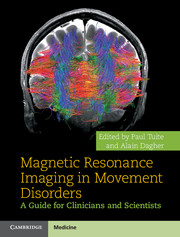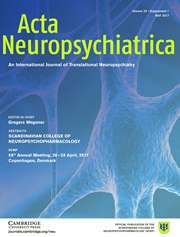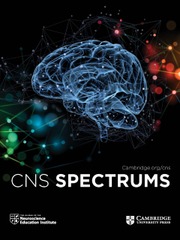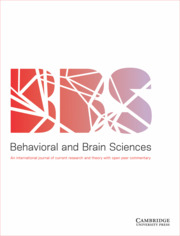Rehabilitation in Movement Disorders
£109.00
- Editors:
- Robert Iansek, Monash University, Victoria
- Meg E. Morris, La Trobe University, Victoria
- Date Published: May 2013
- availability: Available
- format: Hardback
- isbn: 9781107014008
£
109.00
Hardback
Other available formats:
eBook
Looking for an inspection copy?
This title is not currently available on inspection
-
Movement disorders affect a growing patient population, but providing comprehensive care is extremely difficult. Several of these conditions are progressive and incurable; the basal ganglia has a complex role in movement control, with many potential malfunctions. This book focuses on rehabilitation approaches that have been developed and utilized internationally in an attempt to minimize impairment and maximize participation amongst these patients. Each chapter is written by movement disorder experts, rehabilitation specialists and health care professionals, giving a broad overview of current interventions and emphasizing the need for interdisciplinary management, focussing on deliverable outcomes. Common conditions such as Parkinson's disease, cerebral palsy, dystonia and Huntington's disease are comprehensively covered. This book gives neurologists, geriatricians and rehabilitation specialists an up-to-date, theoretically-based approach to managing movement disorders related to basal ganglia malfunction. Also valuable for physiotherapists, occupational therapists, speech pathologists, nurses and social workers seeking to develop and plan appropriate interventions.
Read more- Provides an evidence-based guide to rehabilitation strategies, helping readers develop their own framework for using these
- Emphasizes the need for an interdisciplinary approach and the different roles of allied health professionals
- Written by movement disorder specialists and rehabilitation specialists, giving an up-to-date perspective from those at the front-line of management
Reviews & endorsements
'A textbook which is comprehensive and is sure to be invaluable to clinicians working in movement disorders and those encountering people living with movement disorders in their clinical practice.' Movement Disorders
Customer reviews
Not yet reviewed
Be the first to review
Review was not posted due to profanity
×Product details
- Date Published: May 2013
- format: Hardback
- isbn: 9781107014008
- length: 268 pages
- dimensions: 253 x 195 x 17 mm
- weight: 0.75kg
- contains: 52 b/w illus. 7 colour illus. 28 tables
- availability: Available
Table of Contents
Preface
Part I. Background Concepts:
1. Functional neuroanatomy and physiology in movement disorders Nicola Pavese and David J. Brooks
2. Pathophysiology of basal ganglia disorders: neurophysiological investigations Alfredo Berardelli and Antonio Suppa
Part II. Intervention Options:
3. Medical management of movement disorders Louis C. S. Tan and Kulthida Methawasin
4. Functional neurosurgery of movement disorders Travis S. Tierney and Andres M. Lozano
5. Peripheral surgical and movement modification therapies for movement disorders Barry Rawicki
Part III. Roles of the Multidisciplinary Team:
6. The role of physiotherapy in the rehabilitation of people with movement disorders Lynn Rochester, Sue Lord and Meg E. Morris
7. The role of occupational therapy in the rehabilitation of people with movement disorders Ana Aragon, Jill Kings and Diane Playford
8. The role of nursing in the rehabilitation of people with movement disorders Allison F. Williams, Siok Bee Tan and Victor McConvey
9. The role of neuropsychology in the rehabilitation of people with movement disorders Georg Dirnberger and Marjan Jahanshahi
10. The role of the speech pathologist in the rehabilitation of people with movement disorders Deborah Theodoros
11. The role of social work in the rehabilitation of people with movement disorders Ralph Hampson and Lynette Joubert
Part IV. Rehabilitation of Specific Conditions:
12. Rehabilitation principles in chronic neurological conditions in adults and children John Olver, Gavin Williams, Brooke Adaire and Meg Morris
13. Rehabilitation of Parkinson's disease Robert Iansek and Meg E. Morris
14. Rehabilitation of Parkinsonian syndromes David R. Williams
15. Rehabilitation of Huntington's disease Belinda Bilney and Alan Pearce
16. Rehabilitation of dystonia Daniele Volpe and Giovanni Abbruzzese
17. Rehabilitation of Friedreich ataxia Sarah Milne, Emma Campagna, Martin B. Delatycki and Louise A. Corben
18. Rehabilitation of cerebral palsy Pam Thomason and H. Kerr Graham
19. Rehabilitation of developmental disorders and motor dysfunction Nicole Rinehart, Rachael MacDonald, Chloe Stanley-Cary and Jennifer L. McGinley
Part V. Measurement of Therapy Outcomes:
20. Selection of clinical outcome measures in rehabilitation of people with movement disorders: theory and practice Jennifer L. McGinley and Mary Danoudis
Index.
Sorry, this resource is locked
Please register or sign in to request access. If you are having problems accessing these resources please email [email protected]
Register Sign in» Proceed
You are now leaving the Cambridge University Press website. Your eBook purchase and download will be completed by our partner www.ebooks.com. Please see the permission section of the www.ebooks.com catalogue page for details of the print & copy limits on our eBooks.
Continue ×Are you sure you want to delete your account?
This cannot be undone.
Thank you for your feedback which will help us improve our service.
If you requested a response, we will make sure to get back to you shortly.
×
